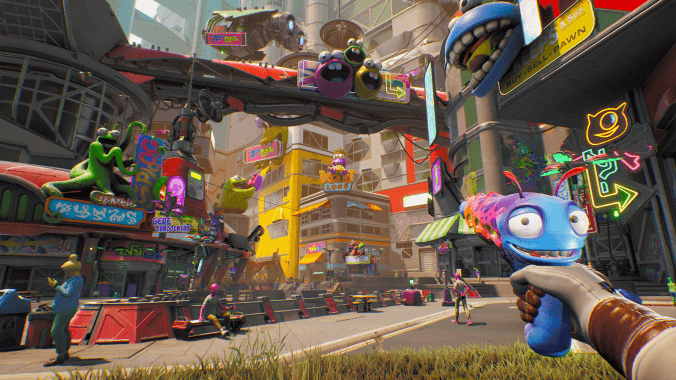Justin Roiland's Squanch Games just lost a CEO, but has everything to gain
Squanch Games is now simultaneously reeling from the success of its first hit game, High On Life—and the departure of co-founder Justin Roiland

Every Friday, A.V. Club staffers kick off our weekly open thread for the discussion of gaming plans and recent gaming glories, but of course, the real action is down in the comments, where we invite you to answer our eternal question: What Are You Playing This Weekend?
Earlier this week—amidst the news that Rick And Morty star and co-creator Justin Roiland was being removed both from that show, and his Hulu series Solar Opposites, after the reveal that he was being tried on domestic abuse charges spawned deeper looks into his online conduct—a similar note went out in the gaming sphere: Roiland was resigning as CEO of his video game company, Squanch Games.
The news comes at what is a very weird moment for Squanch—which, thanks to the recent release of its most high-profile game to date, the heavily promoted High On Life, was already on the cusp of trying to transform into something more than just “the Rick And Morty guy’s personal games studio.” Roiland didn’t write, design, or build High On Life—although he reportedly whipped up its initial concept, about talking guns in a wacky alien world, and pitched in ideas for its design. But it’s still intimately associated with his brand, to the extent that one of its biggest selling points (a month ago) was that it was the game where your main gun constantly yelled at you in Roiland’s “Morty” voice.








































